Houses And Apartments Rental
Dallas Truck Rental: Affordable Options and Expert Tips
 Saturday, October 7, 2023
Saturday, October 7, 2023
Looking to rent a truck in Dallas? This guide has everything you need to know, including the best truck rental companies, average prices, and tips on how to get the best deal.
- Dallas Truck Rental
- U Haul Dallas
- Uhaul Dallas Tx
- U Haul Rental Dallas
- Moving Truck Rental Dallas
- Penske Dallas
- Cargo Van Rental Dallas
- Box Truck Rental Dallas
- U Haul Truck Rental Dallas
- Penske Truck Rental Dallas
- Pickup Truck Rental Dallas
- Penske Dallas Tx
- Dallas Uhaul
- Budget Truck Rental Dallas
- Penske Truck Rental Dallas Tx
- U Haul Rental Dallas Tx
- Truck Rental Dallas Tx
- Uhaul Van Rental Dallas
- Cargo Van Rental Dallas Tx
- Moving Truck Rental Dallas Tx
- Pickup Truck Rental Dallas Tx
Explore Affordable Houston House Rentals: Your Guide to Finding the Perfect Home
 Thursday, September 21, 2023
Thursday, September 21, 2023
Looking for a house to rent in Houston, TX? Look no further! This guide will provide you with everything you need to know, from finding the right neighborhood to negotiating the best price.
- House Rental Companies Houston Tx
- Furnished Corporate Apartments Houston
- 2 Bedroom Apartments In Houston For $600
- The Avenue Apartments Houston Tx
- Memorial Apartments Houston Tx
- Houston Medical Center Apartments Short Term
- Corporate Apartments Houston Downtown
- Corporate Rentals Houston
- 5 Bedroom House Houston Tx Rent
- The Gardens Apartments Houston
- Rental Home Companies In Houston Tx
- Apartments Near 77049
- Apartments In Northeast Houston
- Houston Apartment Locator
- Apartment Locator Houston Tx
Navigating Texas House Rental Assistance Programs: Eligibility, Application, and Support
 Monday, September 18, 2023
Monday, September 18, 2023
Discover how to access Texas House Rental Assistance programs, including eligibility criteria, application steps, and the financial support available. Learn how these programs can help alleviate housing-related financial burdens in the Lone Star State.
- Harris County Rental Assistance Phone Number
- Utility Assistance Killeen Tx
- Security Deposit Assistance Houston Tx
- Legal Help For Renters In Texas
- San Antonio Housing Assistance Program
- Housing Assistance Program In Texas
- Fort Worth Housing Assistance Program
- Rent Assistance For Seniors In Texas
- Fort Bend County Housing Assistance
- Collin County Housing Assistance
- Ellis County Housing Assistance
- Emergency Rental Assistance Dallas Tx
- Texas Rent Relief Español
- Texas Programs To Help Pay Rent
Furniture Rental Houston: A Guide to Renting Furniture in the Bayou City
 Saturday, September 9, 2023
Saturday, September 9, 2023
Are you looking to rent furniture in Houston? This guide will provide you with all the information you need, including the best furniture rental companies, the average prices, and tips for renting furniture.
- Furniture Rental Houston
- Chair Rentals Houston
- Cort Furniture Houston
- Rent To Own Furniture Houston
- Houston Furniture Rental And Sales
- Furniture Rental Houston Tx
- Chiavari Chairs Rental Houston
- Folding Chair Rental Houston
- Peacock Chair Rental Houston
- Houston Event Furniture Rental
- Led Furniture Rental Houston
- Rent To Own Furniture Houston Tx
- Office Furniture Rental Houston
- Luxury Furniture Rental Houston
- Chair Rental Houston Tx
- Throne Chair Rental Houston Tx
- Cort Furniture Houston Tx
What Should You Consider When Choosing an Apartment for Rent in Houston?
 Thursday, September 7, 2023
Thursday, September 7, 2023
Houston is a large and diverse city with a wide variety of apartments to choose from. This guide will help you find the perfect apartment for your needs, budget, and lifestyle.
- Apartments Houston
- Apartments In Houston Tx
- Houston Apartments For Rent
- Luxury Apartments Houston
- Apartments For Rent Houston Tx
- Smart Living Apartments Houston
- Armand Bayou Apartments
- Huntington Glen Apartments Houston
- Huntington Glen Apartments Houston Tx
- University Place Apartments Houston
- Post 510 Houston
- Eado Lofts
- Avanti Apartments Houston
- Dorchester Apartments Houston
- The Avenue Apartments Houston
- The Hollows Apartments Channelview
- Hollyview Apartments Houston
- Cantera Apartments Houston
Rental Assistance in Texas: How to Get Help Paying Your Rent
 Tuesday, August 22, 2023
Tuesday, August 22, 2023
Are you struggling to pay your rent in Texas? There are a number of rental assistance programs available to help you stay in your home. This article provides an overview of the different programs available, as well as information on how to apply.
- Legal Help For Renters In Texas
- Housing Assistance Program In Texas
- Dallas Rent Relief Programs
- San Antonio Emergency Housing Assistance
- Dallas County Rental Assistance 2022
- Houston Rent Relief Program
- Dallas County Rent Help
- Dallas City Rent Assistance
- Apartment Rent Assistance Texas
- Dallas County Rental Assistance Program
- Apply For Rental Assistance Texas
- Dallas City Hall Rental Assistance
- Texas Rent Relief Español
- I Need Help Paying My Rent In Texas
- City Of San Antonio Rental Assistance
Office Space for Rent in Austin, TX: Find the Perfect Space for Your Business
 Monday, August 14, 2023
Monday, August 14, 2023
Austin is a vibrant and growing city with a thriving business community. If you're looking for office space to rent in Austin, there are a variety of options available to suit your needs and budget. In this article, we'll discuss the different types
- Office Space For Rent Austin
- Office Space Austin
- Austin Office Space For Rent
- Shared Office Space Austin
- Austin Office Space For Lease
- Office Space Austin Tx
- Office Space Downtown Austin
- Office Space For Lease Austin Tx
- Office For Rent Austin
- Private Office Space For Rent Austin
- Small Office Space For Rent Austin
- Shared Office Space Austin Tx
- Office Space For Rent Austin Texas
- Small Office Space For Rent Austin Tx
- Austin Office Lease
- Austin Office Space Rental Rates
- Sublease Office Space Austin
Office Space for Rent in San Antonio, TX Find the Perfect Space for Your Business
 Monday, August 14, 2023
Monday, August 14, 2023
Are you looking for office space for rent in San Antonio, TX? You're in luck! There are a variety of office spaces available to choose from, in different sizes and locations to fit your needs. Whether you're a small startup or a large corporation
- Office For Rent San Antonio
- San Antonio Office Space For Lease
- Office Space San Antonio Texas
- Office For Lease San Antonio
- Commercial Office Space San Antonio
- Commercial Office Space For Rent San Antonio
- Office Space For Rent San Antonio
- Office Space San Antonio
- Office Space For Rent San Antonio Tx
- Office Space Downtown San Antonio
- Small Office Space For Rent In San Antonio Tx
- Shared Office Space San Antonio
- Small Office Space For Rent San Antonio
- Cheap Office Space San Antonio
Texas House Rentals: A Guide to Finding the Perfect Place to Live
 Wednesday, August 9, 2023
Wednesday, August 9, 2023
Texas is a great state to live in, and the rental market is no exception. There are houses for rent in every price range and in every location, from big cities like Austin and Dallas to small towns like Fredericksburg and El Paso.
- Texas House Rental
- Houses For Rent San Antonio
- Homes For Rent San Antonio
- Houses For Rent In El Paso Tx
- Houses For Rent In Houston Texas
- Houses For Rent Tyler Tx
- Houses For Rent In Amarillo Tx
- Houses For Rent Abilene Tx
- Houses For Rent Arlington Tx
- Cheap Houses For Rent In San Antonio By Owner
- Houston Houses For Rent
- Houses For Rent Austin Tx
- Houses For Rent Dallas Tx
- Houses For Rent In San Antonio Tx
- Houses For Rent Laredo Tx
- Houses For Rent Longview Tx
Trucks Rental
Houston 18 Wheeler Accident Lawyer - Get the Compensation You Deserve
 Friday, September 8, 2023
Friday, September 8, 2023
If you have been injured in an 18-wheeler accident in Houston, you need to speak to an experienced truck accident lawyer as soon as possible. These accidents can cause catastrophic injuries, and you need someone who will fight for your rights and get
- Houston 18 Wheeler Accident Lawyer
- 18 Wheeler Accident Attorney Houston
- Oilfield Accident Lawyer Houston
- Houston 18 Wheeler Accident Attorney
- 18 Wheeler Accident Attorney Houston Tx
- Houston Semi Truck Accident Attorney
- Houston 18 Wheeler Accident Attorneys
- 18 Wheeler Accident Lawyer Houston Tx
- 18 Wheeler Lawyer Houston
- 18 Wheeler Injury Lawyer Houston
- Houston Semi Truck Wreck Lawyer
- Houston Offshore Accident Lawyer
- Houston Offshore Accident Lawyers
- Houston Truck Accident Lawyer
- Houston Truck
Truck Rental in Austin: A Guide to the Best Rates and Companies
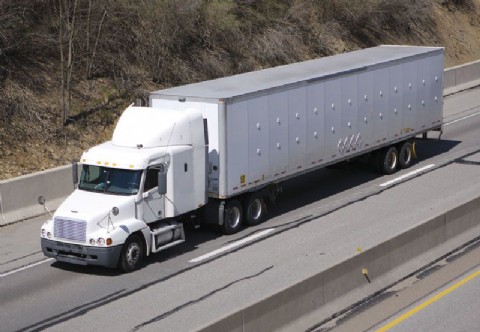 Tuesday, September 5, 2023
Tuesday, September 5, 2023
Are you looking to rent a truck in Austin? This guide will help you find the best rates and companies. We'll cover everything from the different types of trucks available to the most important factors to consider when renting a truck.
- Moving Trucks Austin Tx
- Austin Moving Trucks
- Uhaul Near Austin Tx
- Austin Moving Truck Rental
- Uhaul Storage Austin
- Budget Truck Rental Austin Tx
- Uhaul Austin
- U Haul Storage Austin Tx
- Uhaul Rental Austin
- Penske Truck Rental Austin
- Uhaul Truck Rental Austin Tx
- Uhaul Truck Rental Austin
- Penske Truck Rental In Austin Tx
- Truck Rental Austin Tx
- U Haul Rental Austin Tx
- Rental Trucks Austin
- Uhaul Van Rental Austin
- Rent Uhaul Austin
- Uhaul Trailer Rental Austin
- Uhaul Austin Rental
- Box Truck Rental Austin
Truck Rental San Antonio: A Guide to the Best Companies and Rates
 Tuesday, August 15, 2023
Tuesday, August 15, 2023
Looking for a truck rental in San Antonio? You've come to the right place! In this guide, we'll compare the best companies in town and help you find the best rates. We'll also provide tips on how to choose the right truck for your needs
- Truck Rental San Antonio
- Penske San Antonio
- Moving Truck Rental San Antonio
- Cargo Van Rental San Antonio
- Budget Truck Rental San Antonio
- Penske Truck Rental San Antonio
- Pickup Truck Rental San Antonio
- Box Truck Rental San Antonio
- Penske San Antonio Tx
- Cheap Truck Rental San Antonio
- Enterprise Rent A Truck San Antonio
- Moving Trucks San Antonio
- Refrigerated Truck Rental San Antonio
- Moving Truck Rental San Antonio Tx
- Moving Van Rental San Antonio
- Moving Truck Rental San Antonio
Truck Rental Houston Tx: A Guide to Finding the Best Deals
 Tuesday, August 15, 2023
Tuesday, August 15, 2023
Looking for a truck rental in Houston? This guide will help you find the best deals on rental trucks of all sizes, from moving trucks to pickup trucks. We'll also provide tips on how to choose the right truck for your needs and how to save money on y
- U Haul Houston
- Truck Rental Houston
- U Haul Rental Houston
- Uhaul Houston Tx
- Penske Truck Rental Houston
- Moving Truck Rental Houston
- U Haul Truck Rental Houston
- Uhaul Downtown Houston
- Penske Houston
- Box Truck Rental Houston
- Enterprise Truck Rental Houston
- Pickup Truck Rental Houston
- Penske Houston Tx
- Uhaul Bellaire
- Semi Truck Rental Houston Tx
- Moving Trucks Houston
- Penske In Houston Texas
- Uhaul Movers Houston
- Budget Truck Rental Houston
- Budget Truck Rental Houston Texas
- Uhaul In Houston
Moving Truck Rental in Dallas: A Guide to the Best Options
 Wednesday, August 9, 2023
Wednesday, August 9, 2023
Moving to Dallas? Need a moving truck rental? This guide will help you compare the best options in Dallas, including Enterprise Truck Rental, U-Haul, and Ryder Truck Rental. We'll also cover tips on how to choose the right size truck for your move
- Dallas Trucks Rental
- Moving Truck Rental Dallas
- Penske Dallas
- Cargo Van Rental Dallas
- Box Truck Rental Dallas
- Penske Truck Rental Dallas
- Pickup Truck Rental Dallas
- Penske Dallas Tx
- Budget Truck Rental Dallas
- Truck Rental Dallas Tx
- Budget Truck Rental Dallas Tx
- Commercial Truck Rental Dallas Tx
- Enterprise Truck Rental Dallas Tx
- Cargo Van Rental Dallas Tx
- Moving Trucks Dallas
- Dually Truck Rental Dallas
- Flatbed Truck Rental Dallas
Which truck rental company in San Antonio offers the most competitive rates for moving purposes?
What factors should one consider when choosing a truck rental company in San Antonio for a cost-effective move?
Apartment Furniture Rental
Affordable Furniture Rental Services in Austin - Transform Your Space Today
 Saturday, September 9, 2023
Saturday, September 9, 2023
Are you looking for furniture rental options in Austin? This guide will help you compare the best companies, find the right furniture for your needs, and get the best possible price.
- Furniture Rental Austin
- Cort Furniture Austin
- Furniture Rental Austin Texas
- Rent To Own Furniture Austin
- Cort Furniture Rental Austin
- Rent To Own Furniture Austin Tx
- Cheap Furniture Rental Austin
- Short Term Furniture Rental Austin
- Cort Furniture Outlet Austin
- Cort Furniture Rental Austin Texas
- Cort Furniture Austin Texas
- Apartment Furniture Rental Austin
- Bed Rental Austin
- Cort Rental Austin
- Vintage Furniture Rental Austin
- Office Furniture Rental Austin
Ultimate Guide to Apartment Rental in Texas: Tips, Costs, and Top Locations
 Monday, September 4, 2023
Monday, September 4, 2023
Are you looking for an apartment to rent in Texas? This article will provide you with all the information you need, including average prices, availability, and tips for finding the perfect place.
- Apartment Rental Texas
- Milan Apartments Austin
- Corporate Housing Austin Tx
- Apartment Locator Austin Tx
- Austin Apartment Locator
- Apartments In Selma Tx
- San Antonio Station Apartments
- Waterstone Apartments Spring Tx
- Granbury Heights Apartments
- Timbercreek Apartments Austin
- Creekview Apartments Austin
- Woodbridge Apartments Dallas
- Apartments Houston
- Apartments San Antonio
- Houses For Rent San Antonio
- Apartments Dallas
- Austin Apartments
- Apartments In Houston Tx
- Apartments In Austin Tx
- Apartments In Da
Furniture Rental in Texas: A Guide to the Best Options
 Thursday, August 10, 2023
Thursday, August 10, 2023
Are you looking for furniture rental in Texas? There are many great options available, depending on your needs and budget. In this guide, we will discuss the best furniture rental companies in Texas, as well as the benefits of renting furniture
- Furniture Rental In Texas
- Furniture Rental Austin
- Furniture Rental San Antonio
- Houston Furniture Rental
- Furniture Rental Fort Worth
- Rental Furniture Dallas
- Houston Furniture Rental And Sales
- Furniture Rental Austin Texas
- Furniture Rental Houston Tx
- Rent To Own Furniture Austin Tx
- Furniture Rental Corpus Christi
- Aarons Rent To Own Abilene Tx
- Furniture Rental Dallas Tx
- Aarons Rent To Own Sherman Tx
- Rent To Own Furniture Odessa Tx
- Aarons Rent To Own Midland Tx
Automobiles Rental
Exploring the Lone Star State: Texas Bike Rental Adventures
 Thursday, September 21, 2023
Thursday, September 21, 2023
Texas is a great place to go for a bike ride, with a variety of terrain and scenery to choose from. Whether you're looking for a leisurely ride along the coast or a challenging mountain bike trail, there's something for everyone. And with so many bike rental companies to choose from, it's easy to get started.
- Austin Bike Rental
- Houston Bike Rental
- Bike Rental San Antonio
- Bike Rentals Galveston
- Bike Rental Austin Tx
- Bike Rental Fort Worth
- Bike Rental Galveston Tx
- Austin Electric Bike Rental
- Bicycle Rental Galveston
- Electric Bike Rental South Padre Island
- Road Bike Rental Houston
- Houston Bike Rental
- Bike Rentals Downtown Houston
- Bike Rental Houston Texas
- Bicycle Rental In Houston Tx
- Austin Bike Rentals And Tours
- Austin Bike Tours & Rentals Austin Tx
- Bike Rental San Antonio
Bike Rental San Antonio: A Guide to the Best Places to Rent a Bike
 Monday, September 11, 2023
Monday, September 11, 2023
Looking for a bike rental in San Antonio? This guide will help you find the best places to rent a bike, based on your needs and budget. We'll also provide you with a table of average prices so you can compare options.
- Bike Rental San Antonio
- Bicycle Rental San Antonio
- Bike Rental San Antonio Tx
- Bike Rentals In San Antonio Texas
- Bike Rental San Antonio Texas
- Electric Bike Rental San Antonio
- Bike Rental San Antonio Mission Trail
- San Antonio Electric Bike Rental
- Mountain Bike Rental San Antonio
- Bike Rental Mission Trail San Antonio
- San Antonio Riverwalk Bike Rental
- Mission Trail San Antonio Bike Rentals
- Bike Rental Downtown San Antonio
- Tandem Bike Rental San Antonio
- San Antonio Downtown Bike Rental
Explore Houston on Two Wheels: Premier Bike Rental Services
 Monday, September 11, 2023
Monday, September 11, 2023
Looking for a fun and eco-friendly way to explore Houston? Bike rentals are a great option! In this guide, we'll cover the best places to rent a bike in Houston, as well as the average prices. We'll also provide tips on choosing the right bike for your needs and where to go for a great ride.
- Road Bike Rental Houston
- Houston Bike Rental
- Bike Rental Downtown Houston
- Bicycle Rental Houston
- Bike Rental Houston Texas
- Rent Bikes Downtown Houston
- Bike Hire Houston
- Bicycle Rental In Houston Tx
- Rent A Bike Downtown Houston
- Rent A Scooter In Houston
- Harley Davidson Rentals Houston
- Electric Bike Rental Houston
- Mountain Bike Rental Houston
- Trike Rental Houston
- Tandem Bike Rental Houston
- Houston Bike Rental Near Me
- Bike Rental Memorial Park Houston
- City Of Houston Bike Rental
- Bikes For Rent Hous
Motorcycle Rental Houston: Find the Best Deals and Motorcycles for Your Ride
 Saturday, September 9, 2023
Saturday, September 9, 2023
Looking for a motorcycle rental in Houston? Whether you're a seasoned rider or just getting started, we've got you covered. In this article, we'll compare the best motorcycle rental companies in Houston, so you can find the best deals and motorcycles for your ride. We'll also provide tips on how to rent a motorcycle safely and responsibly.
Texas Motorcycle Accident Lawyer: How to Find the Best Representation for Your Case
 Saturday, September 9, 2023
Saturday, September 9, 2023
Motorcycle accidents can be devastating, both physically and financially. If you have been injured in a motorcycle accident in Texas, you need to speak with an experienced motorcycle accident lawyer as soon as possible. A good lawyer can help you understand your legal rights, protect your interests, and get the compensation you deserve.
- Motorcycle Accidents Attorneys
- Motorcycle Crash Attorney
- Motorcycle Attorneys
- Motorcycle Accident Attorneys Near Me
- Motorcycle Accident Lawyer Near Me
- Motorcycle Injury Lawyer Near Me
- Best Motorcycle Accident Attorney
- Best Motorcycle Accident Lawyer
- Best Motorcycle Crash Lawyers
- Best Motorcycle Crash Attorney
- Best Lawyer For Motorcycle Accident
- Bestmotorcycleaccidentlawyer
- Best Motorcycle Wreck Attorney
- Motorcycle Crash Lawyers
- Motorcycle Lawyers Near Me
- Motorcycle Attorneys Near Me
Houston Car Accident Lawyer: Find the Best Lawyer for Your Case
 Friday, September 8, 2023
Friday, September 8, 2023
If you have been injured in a car accident in Houston, you need to get legal help right away. A good car accident lawyer can help you get the compensation you deserve for your medical bills, lost wages, and pain and suffering. Here are some tips for finding the best Houston car accident lawyer for your case.
- Houston Car Accident Lawyer
- Houston Car Accident Attorney
- Houston Auto Accident Attorney
- Best Car Accident Lawyer Houston
- Houston Car Wreck Lawyer
- Car Accident Lawyer Houston Tx
- Car Wreck Lawyer Houston
- Accident Lawyer Houston Tx
- Houston Auto Accident Lawyer
- Best Car Accident Lawyers In Houston
- Accident Attorney Houston
- Car Accident Attorney In Houston
- Auto Accident Attorney Houston Tx
- Accident Attorney Houston Tx
- Car Wreck Attorney Houston
- Auto Accident Lawyers In Houston Tx
- Car Wreck Lawyer Ho
Car Rental Lubbock TX: Find the Best Deals on Rental Cars in Lubbock
 Tuesday, September 5, 2023
Tuesday, September 5, 2023
Looking for a car rental in Lubbock, TX? Compare prices from top car rental companies to find the best deal on the type of car you need. Book your rental car today and start exploring Lubbock!
- Car Rental Lubbock Airport
- Enterprise Lubbock Tx
- Enterprise Lubbock Tx Airport
- Lubbock International Airport Car Rental
- Car Rental Lubbock Tx Airport
- Enterprise In Lubbock Texas
- Enterprise Rental Car Lubbock
- Enterprise Rental Lubbock Texas
- Avis Car Rental Lubbock Tx Airport
- Enterprise Rent A Car Lubbock Tx
- Car Rental Lubbock Tx
- Hertz Lubbock Airport
- Rent A Car Lubbock
- Lubbock Rental Car Companies
- Car Rental Places In Lubbock Texas
- Cheap Car Rental Lubbock
- Cheap Car Rentals Lubbock Tx Airport
How to Rent a Car in Houston, Texas? Top Tips for Traveling with a Rental Car in Houston
 Tuesday, September 5, 2023
Tuesday, September 5, 2023
Renting a car in Houston, Texas can be a great way to get around the city and explore all that it has to offer. But with so many rental car companies and locations to choose from, it can be tough to know where to start. This guide will walk you through the process of renting a car in Houston, including tips on how to find the best prices, what to look for in a rental car, and how to avoid hidden fees.
- Ez Car Rental Houston Tx
- Renting A Car In Houston Texas
- Rental Car Places In Houston Texas
- Rolls Royce Rental Houston Tx
- Car Rental 77095
- Fox Rent A Car Houston Texas
- Houston Hobby Airport Car Rental
- Car Hire Houston
- Enterprise Rent A Car Houston Tx
- Long Term Car Rental Houston
- Suv Rental Houston
- Rolls Royce Rental Houston
- Houston Hobby Rental Car
- Rent Car Houston Airport
- Avis Car Rental Houston Tx
- Turo Houston Tx
- Budget Car Rental Houston Tx
- Cheap Car Rentals In Houston Texas
- Turo Rental Housto
Texas Car Rental: A Guide to the Best Rates and Companies
 Thursday, August 10, 2023
Thursday, August 10, 2023
Texas is a big state, and if you're planning on visiting, you'll probably need a car to get around. This guide will help you find the best rates on car rentals in Texas, as well as tips on choosing the right company for your needs.
- Texas Car Rental
- Car Rental Lubbock Tx
- Houston Car Rental
- Enterprise Houston
- Rent A Car San Antonio
- Car Rental Austin Tx
- Enterprise Tyler Tx
- Enterprise Arlington Tx
- Avis Austin Airport
- Enterprise Midland Tx
- Dallas Love Field Car Rental
- Enterprise Sherman Tx
- Enterprise Abilene Tx
- Car Rental El Paso Airport
- Car Rental Midland Tx
- Car Rental Arlington Tx
- Enterprise Bryan Tx
- El Paso Car Rental
- Car Rental Mcallen Tx
- Rental Cars Austin Tx Airport
Tools And Equipment Rental
Equipment Rental in Odessa, TX: A Guide to the Best Places to Rent Tools and Equipment
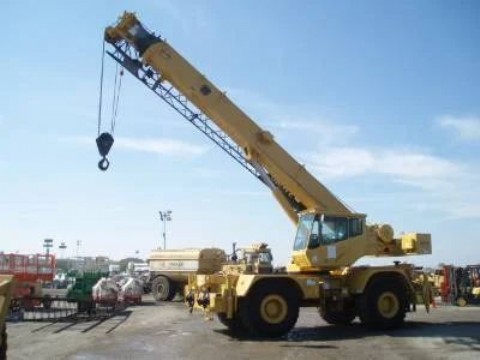 Tuesday, September 5, 2023
Tuesday, September 5, 2023
Looking for a place to rent tools and equipment in Odessa, TX? This guide lists the best equipment rental companies in the area, along with their prices and contact information. Whether you need a ladder, a power saw, or a Bobcat, you'll find it here.
- Roper Rentals Odessa Tx
- Permian Equipment Rentals Odessa Tx
- Warren Cat Rental Odessa
- American Rental Odessa
- Ditch Witch Rental Odessa Tx
- United Rentals Odessa Texas
- Sunbelt Rentals In Odessa Tx
- Man Lift Rental Odessa Tx
- American Rental Odessa Tx
- Generator Rental Odessa Tx
- Asco Rentals Odessa Texas
- Air Compressor Rental Odessa Tx
- American Crane Odessa Tx
- Warren Cat Rental Odessa Tx
- Herc Rentals Odessa Tx
- Roper Equipment Rental Odessa Texas
- Forklift Rental Odessa Tx
- Skid Steer Rental Odessa Tx
Equipment Rental Midland TX: A Guide to the Best Rental Companies and Prices
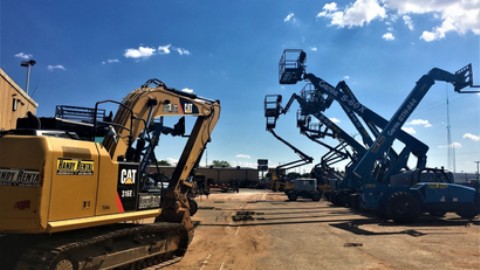 Tuesday, September 5, 2023
Tuesday, September 5, 2023
Are you looking for equipment rental in Midland, TX? This guide will help you find the best rental companies and prices for the equipment you need. We'll cover everything from scissor lifts to generators, so you can find the right tool for the job.
- Equipment Rental Midland Tx
- United Rentals Midland Tx
- Forklift Rental Midland Tx
- Skid Steer Rental Midland Tx
- Tool Rental Midland Tx
- Asco Rentals Midland Tx
- Heavy Equipment Rental Midland Tx
- Backhoe Rental Midland Tx
- Crane Rental Midland Tx
- Generator Rental Midland Tx
- Sunbelt Rental Midland Tx
- Air Compressor Rental Midland Tx
- Permian Equipment Rentals Midland Tx
- Tiller Rental Midland Tx
- Trencher Rental Midland Tx
- Elite Equipment Rental Midland Tx
- Scaffolding Rental Midland Tx
- Bobcat Rental Midla
San Antonio Equipment Rental Services: Affordable Solutions for Your Project Needs
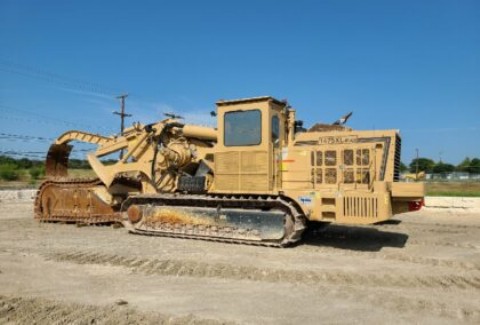 Tuesday, September 5, 2023
Tuesday, September 5, 2023
Looking for equipment rental in San Antonio? This guide will help you find the best rental companies in the city, along with average prices for popular pieces of equipment.
- Equipment Rental San Antonio
- United Rentals San Antonio
- Sunbelt Rentals San Antonio
- Tool Rental San Antonio
- Forklift Rental San Antonio
- Bobcat Rental San Antonio
- United Rentals San Antonio Tx
- Scaffolding Rental San Antonio
- Sunbelt San Antonio
- H&e Equipment San Antonio
- Trencher Rental San Antonio
- Scissor Lift Rental San Antonio
- Stump Grinder Rental San Antonio
- Wood Chipper Rental San Antonio
- Skid Steer Rental San Antonio
- Sunbelt Rentals San Antonio Tx
- Equipment Rental San Antonio Tx
Equipment Rental Texas: Find the Right Equipment for Your Project
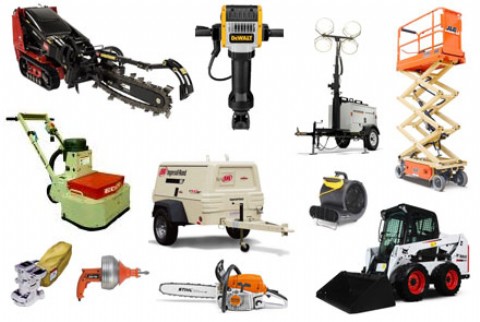 Thursday, August 10, 2023
Thursday, August 10, 2023
Looking for equipment rental in Texas? Whether you're a contractor, homeowner, or DIYer, we can help you find the right equipment for your project. We have a wide selection of equipment to choose from, including excavators, forklifts, dump trucks
- Equipment Rental Texas
- United Rentals Tyler Tx
- A1 Rental Tyler Tx
- Equipment Rental San Antonio
- United Rentals Fort Worth
- Handy Rental Seminole Texas
- United Rentals Beaumont Tx
- United Rentals Dallas
- Equipment Rental Tyler Tx
- Aa Rental Dallas
- Equipment Rental Midland Tx
- Scaffolding Rental Houston
- Equipment Rental Odessa Tx
- Tool Rental San Antonio
- Equipment Rental Abilene Tx
- Equipment Rental Weatherford Tx
- Equipment Rental Dallas
- United Rentals Arlington Tx
- Dripping Springs Rental
Party Equipment Rental
Luxury Texas Yacht Charters: Sail the Lone Star State in Style
 Monday, October 9, 2023
Monday, October 9, 2023
Experience the best of Texas from the water with a yacht charter. From the Gulf Coast to the lakes of the Hill Country, there's a perfect charter for everyone. Learn more about the different types of charters available, the best places to charter from, and what to expect on your trip.
- Texas Yacht Charters
- Rent A Yacht Houston
- Rent A Yacht Dallas
- Yacht Rental Lake Lewisville
- Austin Yacht Rental
- Kemah Yacht Rental
- Private Yacht Charter Texas
- Party Yacht Rentals Dallas Tx
- Yacht Rental South Padre Island
- Yacht Rental Texas
- Kemah Charter Yachts
- Luxury Yacht Charter Texas
- Sailboat Rental Kemah
- Yacht Rental In Houston Tx
- Kemah Sailing Charters
- Sailboat Rental Galveston
- Yacht Rental Galveston Tx
- Yacht Rental Houston Tx
- Yacht Rentals Kemah Texas
- Rent A Yacht In Houston Tx
Dallas Party Rental: Everything You Need to Know
 Tuesday, September 5, 2023
Tuesday, September 5, 2023
Looking for the perfect party rental in Dallas? Whether you're planning a small gathering or a large event, we have everything you need. From tents and tables to chairs and linens, we have the perfect rental items to make your party a success. We als
- Dallas Party Rental
- Bounce House Rental Dallas
- Dallas Event Rentals
- Water Slide Rentals Dallas
- Tent Rentals Dallas
- Dance Floor Rental Dallas
- Table Rentals Dallas
- Bounce House Dallas
- Chair Rentals Dallas
- Linen Rentals Dallas
- Party Tent Rentals Dallas
- Event Furniture Rental Dallas
- White Bounce House Rental Dallas
- Big D Party Rentals Dallas
- Party House Rentals Dallas
- Dallas Inflatable Water Slide Rental
- Dallas Bounce House Party Rentals
- House Rental For Party Dallas
- Linen Rentals Dallas Tx
Party Rental Texas: Affordable and Premium Event Rentals in the Lone Star State
 Tuesday, September 5, 2023
Tuesday, September 5, 2023
Planning a party in Texas? Whether you're hosting a birthday party, wedding reception, or corporate event, you'll need to rent some party equipment. This article will give you everything you need to know about party rental in Texas, including the different types of equipment available, average prices, and tips for finding the best deals.
- Party Rental Texas
- Cowboy Rentals Mansfield Tx
- Cowboy Rentals Midlothian Tx
- Poker Table Rentals Dallas
- Aztec Rentals San Antonio
- Water Slide Rentals Leander
- Casino Night Party Rentals Houston
- Casino Party Rentals Houston Tx
- Bounce House Rental Dallas
- Party Rentals San Antonio
- Dallas Party Rentals
- Bounce House Rental Austin
- Water Slide Rentals Houston
- Houston Party Rentals
- Water Slide Rentals San Antonio
- Austin Party Rentals
- Bounce House Rental Arlington Tx
- Party Rentals Tyler Tx
Water Slide Rentals Texas: The Ultimate Guide
 Thursday, August 10, 2023
Thursday, August 10, 2023
Looking for a way to cool off in Texas this summer? Look no further than water slide rentals! We've compiled a list of the best water slide rental companies in Texas, along with tips on how to choose the right slide for your event.
- Water Slide Rentals Texas
- Water Slide Rentals Houston
- Water Slide Rentals San Antonio
- Water Slide Rentals El Paso
- Water Slide Rentals Dallas
- Water Slide Rentals Burleson
- Burleson Water Slides
- Austin Water Slide Rentals
- Water Slide Rentals Katy
- Waterslide Rentals San Antoniowater Slide Rentals Beaumont Tx
- Water Slide Rentals Spring Txwater Slide Rentals Conroe Tx
- Water Slide Rentals Mcallen Tx
- Water Slide Rentals Edinburg Tx
- Water Slide Rentals Midland Tx
- Water Slide Rentals Tyler Tx
Portable Storage Rental
Looking for Storage in Austin? Discover the Best Options Without Breaking Your Budget
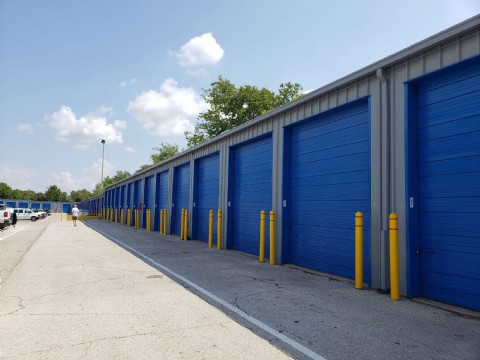 Tuesday, September 5, 2023
Tuesday, September 5, 2023
Are you looking for storage rental in Austin? There are many self-storage facilities to choose from, each with its own unique features and pricing. This article will help you find the best storage unit for your needs, budget, and location.
- Storage Rental Austin
- Storage Units Central Austin
- Storage Units Austin Near Me
- Storage Units Near Austin Tx
- Storage Units 78745
- Storage Units 78705
- Cheap Storage Units Austin Tx
- Storage Units 78704
- Storage Units 78759
- Storage Units Austin Tx
- Austin Storage Unit
- Storage Units 78749
- Cheap Storage Units Austin
- Best Storage Units Austin
- Storage Units Near Ut Austin
- Storage Rental Austin Tx
- Rental Storage Austin
- Storage Unit Prices Austin
- Uhaul Storage Austin
- Austin Storage Unit Price
- U Haul Storage
Affordable Storage Rental in San Antonio - Your Ultimate Guide to Secure and Convenient Solutions
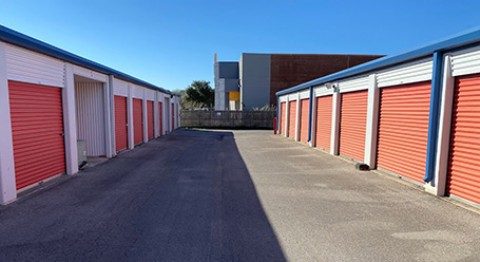 Tuesday, September 5, 2023
Tuesday, September 5, 2023
Are you looking for storage rental in San Antonio? Whether you're moving, decluttering, or simply need a place to store your belongings, we can help you find the best self storage units for your needs. Compare prices, read reviews, and book online with our easy-to-use platform.
- Storage Rental San Antonio
- Cheap Storage Units San Antonio Tx
- Storage Units San Antonio Near Me
- Cheap Storage Units San Antonio
- Storage Units 78254
- Storage Units 78258
- Best Storage Units In San Antonio
- Container Rental San Antonio
- Storage Units 78251
- Storage Units San Antonio
- Storage Units 78213
- Storage Units San Antonio Tx
- Indoor Storage Units San Antonio
- Small Storage Units San Antonio
- Storage Units 78228
- Storage Units Near San Antonio Tx
- Self Storage Units In San Antonio Tx
- Storage Units Near
Storage Rental Houston: A Guide to Finding Affordable and Secure Storage Space
 Tuesday, September 5, 2023
Tuesday, September 5, 2023
Are you looking for affordable and secure storage space in Houston? This guide will help you find the right storage unit for your needs, budget, and location. We'll also discuss the different types of storage units available, as well as the factors you should consider when choosing a storage facility.
- Storage Rental Houston
- Large Storage Units Houston
- Storage Units Downtown Houston
- Uhaul Near 77090
- Storage Container Rental Houston
- Storage Units 77064
- Storage Units 77007
- Storage Units 77077
- Storage Units Near Houston Tx
- Storage Units 77080
- Storage Units 77084
- Pod Rental Houston
- Storage Units 77004
- Storage Units Houston
- Cheap Storage Units Houston
- Storage Units Houston Tx
- Rental Storage Houston
- Uhaul Storage Houston Tx
- Storage Unit Cost Houston
- Houston Storage Unit Cost
- U Haul Storage Houston
Storage Rental Dallas: A Guide to Finding the Perfect Unit for Your Needs
 Tuesday, September 5, 2023
Tuesday, September 5, 2023
Are you looking for storage rental in Dallas? This guide will help you find the perfect unit for your needs, budget, and location. We'll cover everything from the different types of storage units available to the factors that affect the price of rent.
- Storage Rental Dallas
- Storage Units Dallas
- Cheap Storage Units Dallas
- Storage Units Dallas Tx
- Dallas Storage Unit Cost
- Cheap Storage Units Dallas Tx
- U Haul Storage Dallas
- Uhal Near Me
- Storage Units Near Dallas Tx
- Rental Storage Dallas
- Best Storage Units Dallas
- Pod Rental Dallas
- U Haul Storage Dallas Tx
- Storage Units 75206
- Storage Units Near 75287
- Storage Units 75231
- Storage Units 75240
- Storage Units 75248
- Storage Units 75205
- U Haul Storage Dallas Texas
- Storage Unit Rental Dallas
Portable Storage in Texas: A Guide to Your Temporary Storage Needs
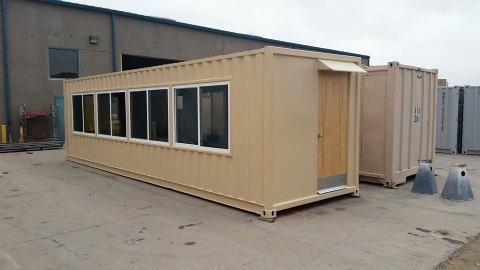 Monday, August 14, 2023
Monday, August 14, 2023
Are you looking for portable storage in Texas? This guide will help you find the perfect solution for your temporary storage needs. We'll discuss the different types of portable storage available, the cost of portable storage, and the regulations gov
Office Space Rental
Commercial Property for Lease in Houston: Find the Perfect Space for Your Business
 Sunday, October 15, 2023
Sunday, October 15, 2023
Discover an array of exceptional commercial properties available for lease in Houston, Texas. Our detailed guide will help you find the perfect space for your business needs, complete with an average price table to assist your decision-making process.
- Commercial Property For Lease Houston
- Office Space For Rent Houston
- Retail Space For Lease Houston
- Warehouse Space For Rent Houston
- Small Retail Space For Lease Houston
- Commercial Space For Rent Houston
- Office Space Lease Houston
- Cheap Retail Space For Lease Houston Tx
- Business Space For Rent Houston
- Office Space Houston Tx
- Space For Lease Houston
- Commercial Property For Rent Houston
- Houston Commercial Real Estate For Lease
- Space For Rent Houston
- Houston Industrial Space For Lease
Office Space for Rent in San Antonio: A Guide to Prices, Locations, and Amenities
 Tuesday, September 12, 2023
Tuesday, September 12, 2023
Are you looking for office space to rent in San Antonio? This guide will provide you with all the information you need, including average prices, popular locations, and available amenities.
- Office For Rent San Antonio
- Office For Lease San Antonio
- Office For Rent San Antonio Tx
- Commercial Office Space San Antonio
- Regus Office Space San Antonio
- Commercial Office Space For Rent San Antonio
- Office Space For Rent San Antonio
- Small Office Space For Rent San Antonio
- San Antonio Office Space For Lease
- Small Office Space For Rent San Antonio Tx
- Small Office Space For Rent In San Antonio Tx
- Office Space For Rent San Antonio Tx
- Coworking In San Antonio
- Office Space San Antonio
- Shared Office
Office Spaces for Rent in Austin: Best Options to Fit Your Budget
 Saturday, September 9, 2023
Saturday, September 9, 2023
Austin is a thriving city with a growing economy, making it a great place to start or grow a business. If you're looking for office space in Austin, there are a few things you need to know. In this guide, we'll walk you through the process of finding
- Office Rent Austin
- Office Space For Rent Austin
- Office Space Austin
- Austin Office Space For Rent
- Austin Office Space For Lease
- Office Space Austin Tx
- Office Space Downtown Austin
- Office Space For Lease Austin Tx
- Private Office Space For Rent Austin
- Temporary Office Space Austin
- Small Office Space For Rent Austin
- Shared Office Space Austin Tx
- Office Space For Rent South Austin
- Office Space For Rent Austin Texas
- Small Office Space For Rent Austin Tx
- Austin Office Lease
- Office For Lease Austin Tx
Office Space for Rent in El Paso, TX Find the Perfect Space for Your Business
 Monday, August 14, 2023
Monday, August 14, 2023
Are you looking for office space for rent in El Paso, TX? You've come to the right place! We have a wide variety of office spaces to choose from, in different sizes and locations to fit your needs. Whether you're a small startup
- Office Space For Rent El Paso
- Office Space El Paso
- Business Space For Rent El Paso Tx
- Small Office Space For Rent El Paso Tx
- Office Space For Rent El Paso Tx
- Commercial Property For Lease El Paso Tx
- Office For Rent El Paso Tx
- Offices For Rent El Paso
- Space For Rent El Paso Tx
- Office Space El Paso Tx
- Office Space For Lease El Paso Tx
- Offices For Rent El Paso Tx
- Office Space For Lease El Paso
- Office Space For Rent In El Paso Tx
- El Paso Office Space For Lease
Navigating the Best Office Spaces in Fort Worth: Unlocking Productivity and Potential
 Monday, August 14, 2023
Monday, August 14, 2023
Fort Worth is a thriving city with a diverse economy, making it a great place to find office space for your business. This guide will walk you through the process of finding the perfect space for your needs, budget, and location preferences.
- Office Space For Rent Fort Worth
- Office Space Fort Worth
- Shared Office Space Fort Worth
- Studio Space For Rent Fort Worth
- Fort Worth Office Space For Lease
- Office Rental Fort Worth
- Small Office Space For Rent Fort Worth
- Commercial Property For Lease Fort Worth
- Cheap Office Space For Rent Fort Worth
- Private Office Space For Rent Fort Worth
- Office Rental Space Fort Worth
- Commercial Real Estate For Lease Fort Worth
- Office Space Downtown Fort Worth
- Office Space Fort Worth Tx
- Office Space For Rent For
The Best Coworking Spaces in Dallas for Every Need
 Monday, August 14, 2023
Monday, August 14, 2023
Looking for a coworking space in Dallas? There are many great options to choose from, depending on your needs and budget. In this article, we'll explore the best coworking spaces in Dallas for every need, from solopreneurs to startups
- Coworking Space Dallas
- Common Desk Dallas
- Industrious Dallas
- Coworking Dallas
- Shared Office Space Dallas
- Shared Workspace Dallas
- Dallas Wework
- Work Spaces Dallas
- Wework Dallas Pricing
- Common Desk Dallas Locations
- Wework Dallas Preston Center
- Best Coworking Spaces Dallas
- Coworking Space Downtown Dallas
- Work Spaces In Dallas
- Coworking Deep Ellum
- Downtown Dallas Coworking Spaceoffice Space Dallas
- Office Space For Rent Dallas
- Office Space For Lease Dallas
- Office Space For Rent Dallas Tx
- Regus Office
Find Office Space in Houston for Your Growing Business
 Monday, August 14, 2023
Monday, August 14, 2023
Houston is a great city for businesses of all sizes, and there are plenty of office spaces to choose from. This article will help you find the perfect office space for your needs, budget, and location.
- Office Space Houston
- Coworking Space Houston
- Office Space For Rent Houston
- Regus Office Space Houston
- Firmspace Houston
- Shared Office Space Houston
- Small Office Space For Rent Houston
- Coworking Houston
- Commercial Space For Rent Houston
- Office Space Lease Houston
- Office For Rent Houston
- Studio Space For Rent Houston
- Virtual Office Space Houston
- Business Space For Rent Houston
- Office Space Houston Tx
- Private Office Space For Rent Houston
- Houston Office Space For Sale
- Small Office Space Houston
Office Space Rental in Texas: A Guide to Finding the Perfect Space for Your Business
 Monday, August 14, 2023
Monday, August 14, 2023
Are you looking for office space to rent in Texas? This guide will help you find the perfect space for your business, no matter what your size or budget. We'll cover everything from location and amenities to cost and lease terms.
- Office Space San Antonio
- Office Space Rental Texas
- Office Space For Lease Dallas
- Private Office Space For Rent Dallas
- Office Space For Rent Arlington Tx
- Office Space For Rent Dallas Tx
- Office Space Houston Tx
- Office Space For Rent Mcallen Tx
- Small Office Space For Rent Arlington Tx
- Houston Office Space For Rent
- Office Space For Lease Austin Tx
- Office Space Dallas Tx
- Office Space For Rent Beaumont Tx
- Office Space For Rent Allen Tx
- Small Office Space For Rent El Paso Tx
- Office Space For Rent Irv
What is the cost of renting office space in San Antonio?
Can you provide information about the average price for office space rental in San Antonio? Do you have details on the expenses associated with leasing office space in San Antonio?






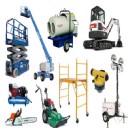



 Texas Rental
Texas Rental hlpdskcontact@gmail.com
hlpdskcontact@gmail.com Facebook
Facebook Twitter
Twitter LinkedIn
LinkedIn Tumblr
Tumblr
